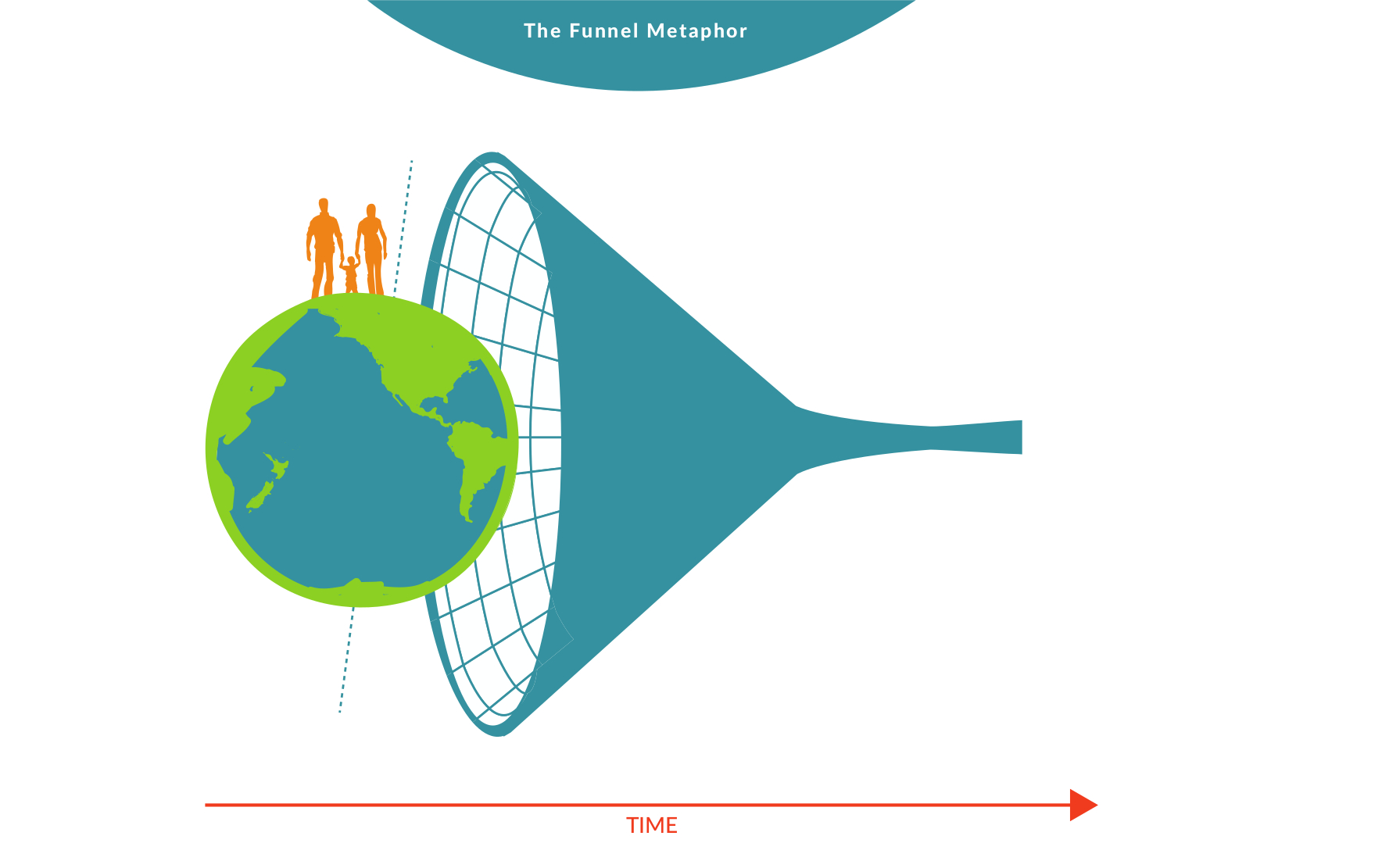Sustainable Tourism/Activities/The Sustainable Funnel
Learning outcomes - Sustainable Tourism (LO 1-4)
Created in conjunction with Exploring Tourism (LO 5)
Contents
Video Signpost
|
|
|
A free content video streamed from Vimeo
Avoid deletion: Upload a free format version of this video to the Commons |
Background
The Funnel is a simple metaphor that represents the transition from a society that is unsustainable to one that is sustainable and, ultimately, restorative. The walls of the Funnel are currently closing because of the way we’re living. The model reflects that there is less and less of the things we need to ensure well-being and prosperity for people over the long-term. Yet, there is continually increasing demand for those things through population growth and agendas pursuing traditional economic development.
From an ecological and economic perspective, the Funnel represents issues like the declining amounts of natural materials, minerals, scarce metals and healthy ecosystems available to meet our needs. Globally, the health of soils, seas, rivers, lakes, forests and air is in decline because of pollution, over-exploitation and over-use. And with population numbers growing, the stress placed on these systems is increasing.
From a social perspective, the Funnel represents issues like declining levels of trust, influence, equality, diversity and meaning. The walls of the Funnel reflect the many trends of unsustainable systems that are visible all over the world. For example, increasing prices for materials, energy, land and water; declining water quality and availability; and declining environmental quality. Declining levels of trust that people have in business and government. At the same time, there are more and more people on the planet seeking first world living standards. The pressure for economic growth is relentless, and as long as that growth uses the same approach, the walls of the Funnel continue to close.
How do these issues they affect our society, and the economy? What risks does this funnel-like dynamic create? And, what opportunities does it create for those communities and organisations that understand it? What must change to achieve a viable future? The key point of the Funnel is that until we redesign the way society is governed at a global level (primarily the economic governance model), the walls of the funnel will continue to get closer together with inevitable risks for businesses and people.
Backcasting (from Sustainability Principles)
Systems thinking
In a sustainable society, nature is not subject to systematically increasing concentrations of:
- substances extracted from the Earth’s crust;
- substances produced by society;
- degradation by physical means;
- and in that society, people are not subject to conditions that systematically undermine their capacity to meet their needs.
These four conditions are often written as positive principles, simplified for application to any organisation, community or product:
To become sustainable we must:
- Eliminate our contribution to the progressive build-up in nature of substances extracted from the Earth’s crust (for example, heavy metals and fossil fuels);
- Eliminate our contribution to the progressive build-up in nature of chemicals and compounds that are produced by society (for example, plastics, dioxins, PCBs and DDT);
- Eliminate our contribution to progressive physical degradation and destruction of nature and natural systems (for example, over-harvesting forests, destroying habitat and over-fishing); and
- Eliminate our contribution to conditions that undermine people’s capacity to meet their basic human needs (for example, unsafe working conditions and poverty wages).
Task
Models
Using the Great Barrier Reef as your topic (destination) and the information supplied both above and below - please complete the funnel model as per your facilitators instructions and email by Monday, April 4 at 5pm before posting your model (as a PDF) by 8pm. (20%)
Resources
Marine Resources
